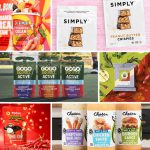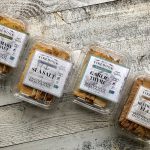Amazon Invests In Growth; Whole Foods Posts Losses

“Your margin is my opportunity.”
Amazon CEO Jeff Bezos may have said those words in 2014, but the thought remains top-of-mind for many as Amazon released its Q2 earnings Thursday night. The numbers showed that Amazon’s main commitments are still to value and customer experience, not just profit margins.
The e-commerce retailer increased net sales by 25 percent to $38 billion for the quarter, but earned less per share then Wall Street was expecting. Amazon SVP and CFO Brian Olsavsky said Q2 year-over-year earning differences were ”driven by investments” in the company’s own technologies like Echo, a ramp-up of its original video business and increased spending on hiring and marketing.
But its biggest–and most costly– pending investment is Amazon’s acquisition of Whole Foods Market for $13.4 billion. Olsavsky said during the investors call that he was excited for the addition of a “customer-centric [team], just like us” and seeing how it will evolve Amazon’s strategy for grocery.
“[In regards to] the place of Amazon Fresh, likely Prime Now and some of our other efforts, I would say we believe there’ll be no one solution, so we’re experimenting with a number of the formats from physical pickup points in Amazon Go to online ordering and delivery to your door through Prime Now and Amazon Fresh,” Olsavsky said. “And we’ll see how customers respond. We like the response that we’ve seen so far.”
As for the target of the looming buyout, Whole Foods also released its quarterly earnings this week. In the report released Wednesday, Whole Foods noted a 1.9 percent drop in same-store sales for the third quarter that ended on July 2. The closure marks the eighth straight quarter the figure has dropped as Whole Foods has been struggling to compete against traditional grocers who are increasingly expanding their natural options.
The posted declines come less than a week after Whole Foods opened its newest location in Harlem, which is said to embrace local suppliers from the borough’s community. The opportunities for smaller, local brands in the post-Amazon Whole Foods has previously been a point of concern for brands.
Details are expected to remain vague until the deal closes on August 23. Until then, Whole Foods said it would not update its financial outlook for the year.
Some think Amazon investors should not be concerned. Starbucks CEO Kevin Johnson praised the deal and Amazon’s business strategy during his own quarterly earnings call Thursday.
“[It’s] clear that the winners coming out of this are going to be those companies who find elegant ways to bring an in-store experience together with a digital experience,” Johnson said. “And I highlighted the number of examples of companies and the work they’re doing, you know, including the most recent discussion around Amazon’s announcement to combine with Whole Foods.”
Starbucks also announced during that call that the company will be shutting down another brick-and-mortar play of its own, Teavana, which currently has 379 stores.
Regardless, analysts agree, investor concerns are coming too early. Even if the deal makes Amazon “literally no profit,” Michael Yoshikami, founder of Destination Wealth Management, said on CNBC’s “Closing Bell” he thinks other aspects of its business, like drone technology, would benefit from Whole Foods’ assets.
“That’s how you look at this company. It’s all about the vision and the future,” Yoshikami said. “Jeff Bezos is not looking at next year, he’s looking 20 years down the road and always has.”












